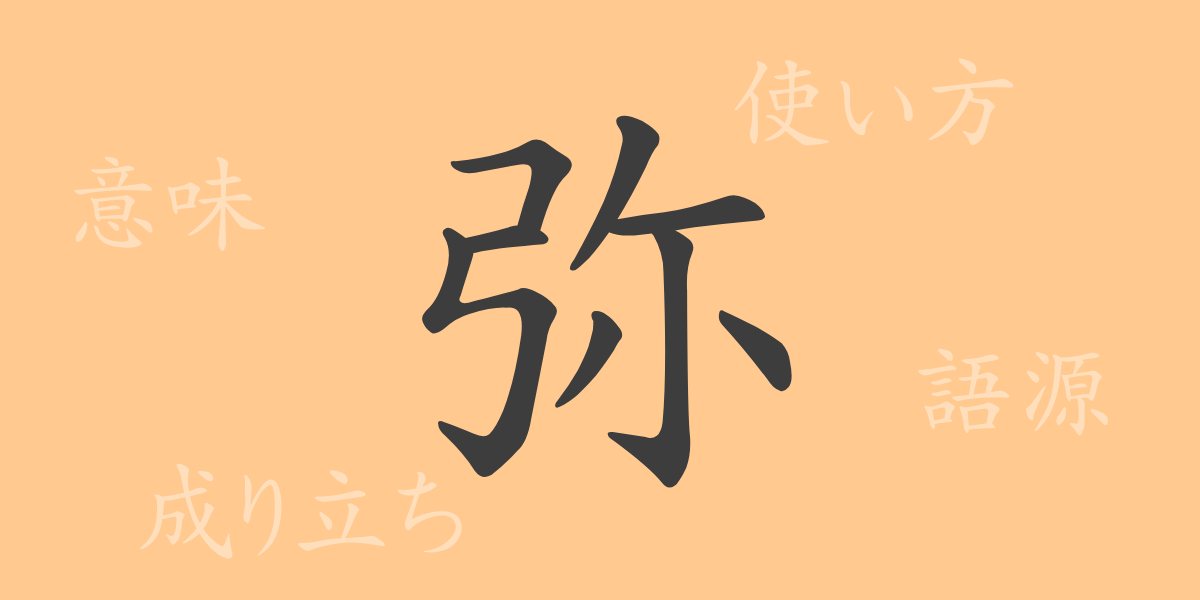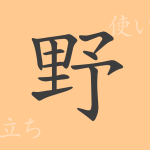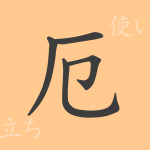The beauty of the Japanese language is reflected in its complex and rich characters. Each kanji character has its own history and unique story. The character “弥 (ya)” is no exception. In this article, we will guide you through the world of the common-use kanji “弥 (ya).” From its origins and meanings to its usage in idioms and proverbs, let’s delve into the fascinating aspects of “弥 (ya).”
The Origin of 弥 (ya)
The kanji “弥 (ya)” can trace its origins back to the ancient Chinese oracle bone script. It originally appeared as “疋 (shiki),” symbolizing the act of spreading out cloth. Over time, the form evolved and settled into its current shape, “弥 (ya).” This character carries the meaning of expanding or filling up and has played an important role in many cultures and languages.
The Meaning and Usage of 弥 (ya)
The kanji “弥 (ya)” means “increasingly” or “more and more,” representing situations where something grows, expands, or continues. This kanji is often used in literature and poetry to richly express emotions and emphasize situations.
Readings, Stroke Count, and Radical of 弥 (ya)
“弥 (ya)” showcases the depth of Japanese kanji with its diverse readings and form.
- Readings: On-yomi (音読み) readings are “ビ (bi)” and “ミ (mi),” while Kun-yomi (訓読み) readings include “いや (iya),” “や (ya),” and “あまねし (amaneshi)”
- Stroke Count: 8 strokes
- Radical: 弓 (yumi-hen, meaning “bow”)
Idioms, Proverbs, and Words Containing 弥 (ya)
Idioms, proverbs, and words containing “弥 (ya)” are excellent examples of the richness of Japanese expression. For instance, “弥次馬 (やじうま, yaji-uma)” refers to a meddlesome person, and “弥生 (やよい, yayoi)” is an ancient term for March, still in use today. These words form a part of the history and culture of the Japanese language.
Conclusion on 弥 (ya)
Through this article, we have explored the multifaceted aspects of the kanji “弥 (ya).” Understanding its origins, modern usage, readings, and idioms provides deeper insight into the Japanese language. By incorporating expressions containing “弥 (ya)” into daily communication, one can weave a richer and more vibrant tapestry of words.

























